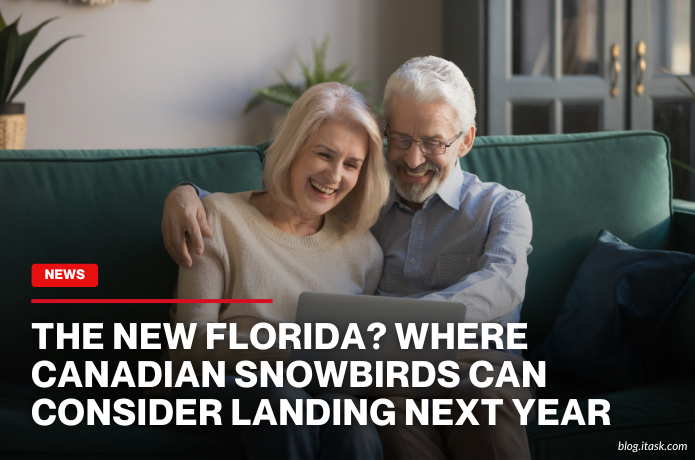The New Florida? Where Canadian Snowbirds Can Consider Landing Next Year
The New Florida? Where Canadian Snowbirds Can Consider Landing Next Year

As many Canadian snowbirds return home, more are questioning whether Florida should still be their winter retreat. In past years, the lure was obvious — warm weather, close proximity, golf, tennis, pickleball and a relaxed lifestyle. But growing political tension and a new “elbows‑up” climate, tied to recent U.S. policies and rhetoric, are making Canada’s winter travelers think twice.
Recent travel data shows Canadian road trips to the U.S. dropped significantly this spring compared to last year, and air return trips have also fallen. This marks the fourth straight month of decline. Many snowbirds are putting their Florida properties up for sale or choosing to rent them out instead of heading south themselves.
Adding to the concern are new U.S. immigration rules that require Canadians staying more than 30 days to register online, submit fingerprints, and carry proof of legal visitor status. These extra steps feel like a hassle to snowbirds who used to enjoy easier entry, with stays up to six months without visas.
A new proposal in the U.S. called the Canadian Snowbird Visa Act could ease some restrictions. It would allow qualifying Canadians over age 50 who own or lease property in the U.S. to stay for up to 240 days per year instead of the usual 182. However, it wouldn't change the need for registration or fingerprinting.
Some Canadians say they no longer feel welcome in the U.S. From shifting attitudes to more paperwork and politics, the experience is starting to lose its appeal. Real estate agents in traditional snowbird areas like Florida and Arizona are seeing far more Canadian sellers than buyers, with some areas seeing a sharp increase in listings.
As a result, many are starting to explore other destinations. Countries like Portugal, France, and Mexico are catching attention with their friendly visa rules, better exchange rates, and more relaxed lifestyle. For Canadians looking to escape the snow, these places may become the new go-to spots next winter.
